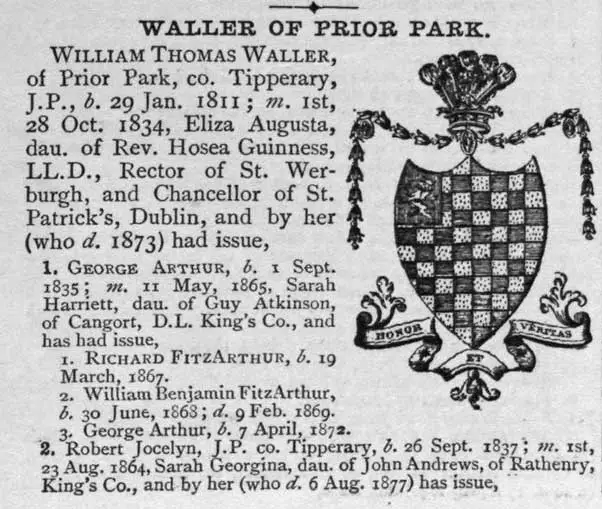Niall Cullen, Findmypast
Guinness is a name that is as associated with Ireland as Murphy, O’Connell or Kelly. Therefore, it’s unsurprising that Guinnesses can be found throughout the records on Findmypast.
However, not only do entries in the records relate to the famous brewing family but the lesser known branches of the family too.

The Guinness family tree reveals the carefully managed creation of a dynasty by Arthur Guinness (1725-1803), and built on over the course of the nearly 300 years since.
The integrity of the family was maintained by careful intermarriage of cousins, a common practice among wealthy or landed families in Ireland at the time.
In a reversal of the common practice of the time the family business passed to second sons or nephews, rather than the eldest son.
The eldest sons of the first two generations were ordained, Hosea Guinness (1765-1841) and William Smythe Lee Grattan Guinness (1795-1864).
However, by the 19th century the family appear to reverse this trend and eldest sons are to be found in charge of the business.
The family joined the brewing industry in 1752, turning a previously small-scale cottage industry into an international business over the course of the coming years. They moved to the now famous landmark James’ Gate buildings in 1759.
As you might expect such a prominent family in Dublin appears in many of the records on Findmypast including the Freemen of Dublin City 1774-1824 in the earlier period.

At the turn of the century they are also to be found in Burkes Landed Gentry of Ireland, 1899, where the Guinness women can be seen to marry into the ranks of the landed gentry (see image above).
Very interestingly, you’ll also find the Guinness family mentioned in Findmypast’s 1798 Rebellion collections. They are recorded among the 8,000 names listed in the transcripts of the 1798 Claimants and Surrenders.
The Guinness family sought compensation for the loss of “porter & casks” with a value of £99, 16s 8d, a considerable sum of money at the time. One has to wonder if the porter was sold or drunk!
findmypast.html